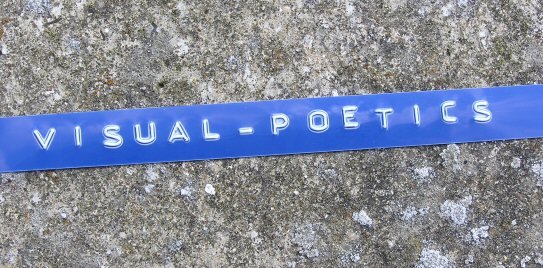I was recently asked to write some background to one of my poems and explain why I used a particular form for it. It is interesting going back to a poem and trying to remember the intention behind it. I couldn't remember when I wrote the poem - except I knew it was before I moved house in 2021. The intentions were clearer to me and the reasons I laid it out as prose poem with slashes. I will share the poem and what I wrote. The poem is from my book The Telling.
girl was born
girl was in the world / her mother was a horse / and her father was a pony / or was it the other way round / girl never knew when a day would turn sour / the world was a farmyard full of plastic animals / the houses were wooden / tiny painted rectangles for windows / nothing to look out from / girl looked out of her rectangular eyes with longing / girl reached for quiet / she reached for making sense / the words danced themselves up and down on the page / until finally she understood them / girl was born too late / or too early / she became a sister / then she became a sister again / she ran up the slippery stairs two at time / she jumped down them / girl was a ratty tennis ball / somewhere along the way she lost her bounce / girl was born a second time / girl was born of the woods / her father was a pine tree / her mother was a bramble / the house was full of midges / there was no way of returning to where she had come from / she picked up a twig shaped like a gun and aimed it
I wrote this as a stream of consciousness piece. I was thinking about how it felt like I had two different lives as a child. The first life from birth to three years old where we lived in a bedsit in my mum's friend's house in London (Ealing) - the friend had three kids, a dog and was a dress maker, the house was always busy. And then the second life when we moved to Thetford, a small town in Norfolk. There we had a two bedroom council house and I was the only child until my sister was born two years later. In Thetford the house was quiet. During the day it was just me and my mum. We lived opposite a pine wood - that wood was a big part of my childhood and often creeps into my poems, as does the pine forest that Thetford was surrounded by. I was a bright (some might say precocious) child (I was also neuro-divergent but we didn't know that then). I refused to go to nursery and also insisted on learning to read when I was 3 or 4. I learned using the Dr Seuss books. I was also a tomboy - preferring cars and guns to dolls.
The poem is about a girl trying to make sense of the world around her. The objects (such as toys) become anchors or signs to steer by. Sometimes the separation between the girl and the object becomes blurred. I have always imagined people as different types of animal and object and vice versa. It helps me to make sense of things and is probably heavily influenced by the types of book I read as a child - fairytales, Tolkien and Enid Blyton - books where animals and trees talk and the most surprising and surreal things can happen.
The order of the poem is not logical, it is not a linear chronologically ordered narrative. Memories are generally not linear - one memory can spark another and another. I knew it would probably be a prose poem as I was writing it. I like the density of a prose poem and the way it can keep that stream of consciousness feel. When it came to editing it, using conventional punctuation like full stops and commas felt wrong. Commas and full stops made each thought (each segment) feel too final, too separate somehow, but I still felt like I needed to break up the text with more than just a simple space. The use of the space in place of punctuation feels (to me) like it slows down the speed at which one reads the text. I like the use of slashes in poems - it feels like each slash is a momentary pause in thought - but exactly that - momentary, the eye moves on fairly quickly as the text feels more cohesive than if it had gaps and line breaks. It also means that you can break the syntax of the poem in unexpected places (a little like enjambement I suppose). I like this and when I read the poem out loud, I do read it with these tiny breaks. It might sound a little jarring at first, but I like this - it feels right for the voice of the poem. Natalie Diaz says of her slashed poems "I hope they make the readers’ eyes uncomfortable, that they physically and musically express the disjointed, jagged experience explored in the poem."
You can buy my book The Telling from Nine Arches Press - https://www.ninearchespress.com/publications/poetry-collections/the-telling




